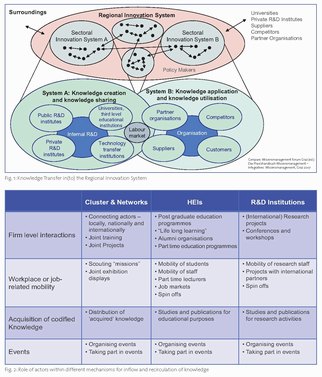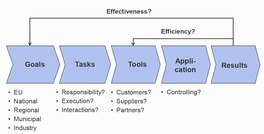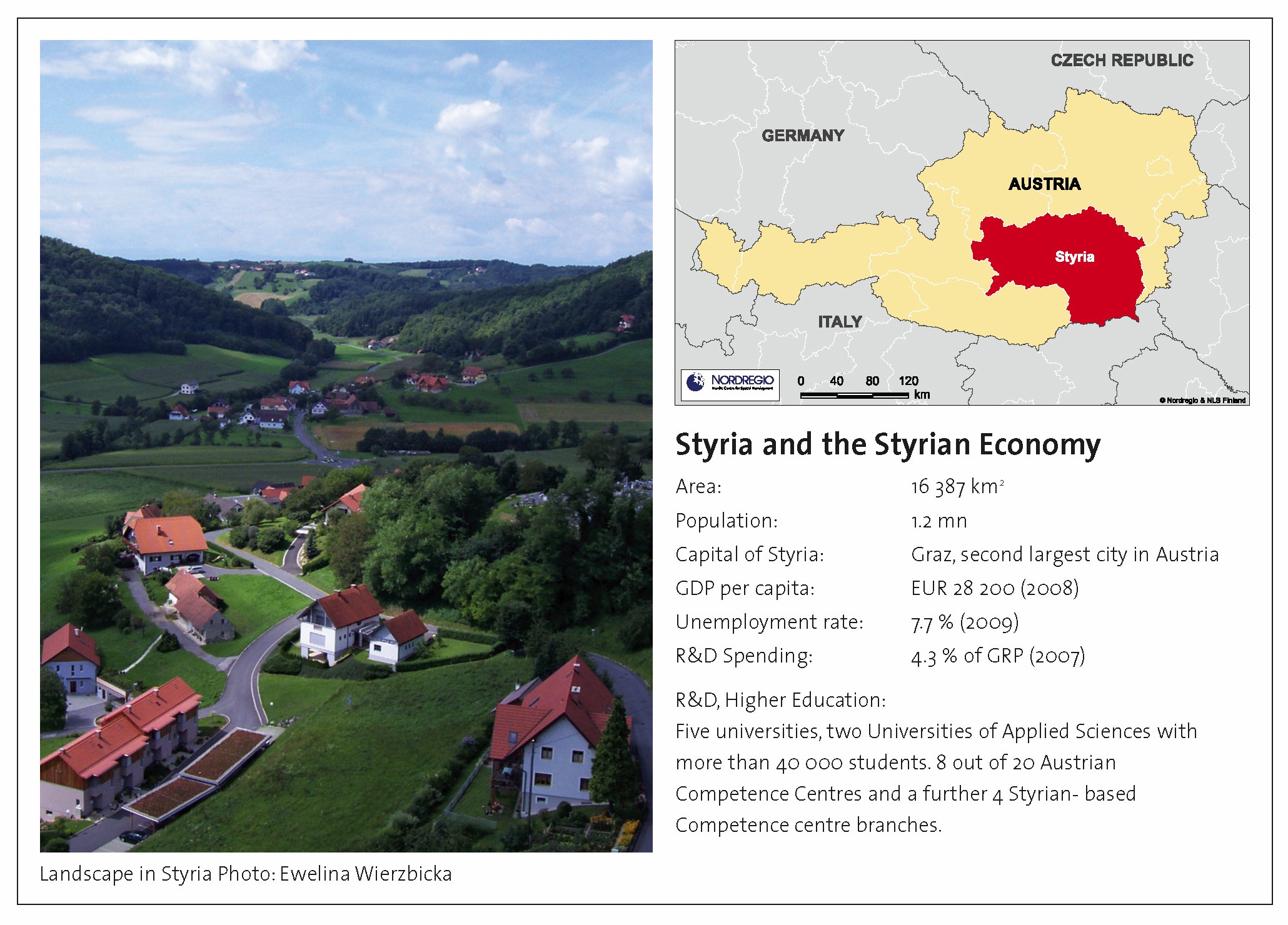The achievements of the Styrian economy are based on eleven core sectors, which are internationally successful thanks to the existence of top industrial companies, outstanding training and research facilities and exemplary cooperation between the business community and science. These core sectors are:
• Automotive, Mobility
• Energy and Environmental Engineering
• Engineering, Plant Engineering
• Wood, Paper, Timber Construction
• Human Technology
• Creative Industries
• Food Technology
• Nanotechnology and Microtechnology
• Simulation, Mathematical Modelling
• TIME (Telecommunication, IT, New Media, Electronics)
• Materials
 Besides research activities at the local universities, a number of notable research institutions have been established, where private sector businesses and scientists cooperate through joint research programmes, aiming at mutually beneficial development at the highest level.
Besides research activities at the local universities, a number of notable research institutions have been established, where private sector businesses and scientists cooperate through joint research programmes, aiming at mutually beneficial development at the highest level.
The Styrian Business Promotion Agency, the SFG, is a state-owned company dedicated to strengthening and growing the Styrian economy. The SFG offers companies a variety of services free of charge, ranging from financial consultancy to providing information regarding opportunities for vocational education and training (VET). The SFG provides expertise on commercial property and advice regarding company start-up/relocation, in addition to supporting innovative R&D projects through a series of national and European funding solutions.
Knowledge Anchoring and Territorial Knowledge Dynamics
Compared to those regions studied in the context of the REKENE project, with the exception of the Stockholm region, Styria is relatively large and its economy is very diverse. Nevertheless, Styria has certain sub-regions that are quite comparable to the regions studied in the REKENE project, e.g. the food industry in the south eastern part of Styria or the metals and metal processing industry in the so called "Mur-Murz Furche", a valley approximately 50km north of Graz.
For all core sectors, the acquisition as well as the generation of knowledge within Styria is vital for its economic success. When analysing the mechanisms fostering these processes, one has to consider that the sources of knowledge are different and that a region consists of different sectoral innovation systems such as the life sciences industry or the food sector. However, with the revised strategy for the Styrian economy which is currently being developed, these core sectors will likely be consolidated to three lead-themes: Mobility, Eco-Tech and Health-Tech.
Furthermore, the regional innovation system can be divided into two sub-systems: The system of knowledge creation and sharing and the system of knowledge application and utilisation (see Fig. 1).
Additionally, policy makers are not usually part of these innovation systems but they can provide strong impetus to the system's performance. We, at the SFG, have discovered that an in-depth under-standing of the role each and every actor in our regional innovation system plays, is very important in order to derive the right measures to enhance territorial knowledge dynamics (see Fig. 2).
Particularly important for our region are conferences and cluster initiatives. Styria's life science cluster, Human Technology Styria – HTS (www.humantechnology.at) for example was founded in 2004 and currently has 76 partners. The cluster organisation provides various services for its members such as business development, partner search, marketing and advertising, workshops, seminars, information on internal and branch-related topics etc.
Conferences are an excellent opportunity to get interesting "knowledge workers" into our region. This year for example, Graz University of Technology and the Know Centre Graz organised the I-Know, an international conference on "Knowledge Management and Knowledge Technologies" (the biggest in Europe) for the 10th time. This year, more than 500 researchers and practitioners met to discuss technological aspects of knowledge management.
Firm Level Perspective
When talking about knowledge dynamics and interactions from a firm level perspective, we have to discuss the roles of different actors. Private companies are usually the main actors, providing primarily synthetic knowledge, R&D and production infrastructure, and bear the responsibility for economic success. Public actors act mainly as potential customers, financiers and contact brokers, and are sometimes partners in projects.
Higher Education and R&D Institutions are a hotbed of innovation; they mainly provide analytical knowledge, well trained staff and an R&D infrastructure. Clusters and Networks generally provide the services listed above, but most importantly, they act as contact brokers.
Fig. 3: From goals via tasks and tools to results
 Knowledge Dynamics, Policies and Tools
Knowledge Dynamics, Policies and Tools
When developing appropriate tools for harnessing knowledge dynamics in regional development, it is very useful to firstly consider the tasks, as stated in the final report of the REKENE project. Perhaps of greater importance, however, is primary consideration of the goals (see Fig. 3).
The goals are set on different levels and require specific tasks for their accomplishment. As regards the tasks, varying responsibilities for execution have to be considered, requiring strong and multifaceted interactions within regional innovation systems.
In the application of the tools a customer-focused approach seems to be most suitable here, while bearing in mind the importance of "suppliers" and partners. Finally, controlling and observing the results achieved by applying the tools leads us to two fundamental questions:
• Have we applied, and more specifically developed, the right tools to achieve our goals?
• Have the tools which were selected or developed been efficiently applied?

By Karl Ritsch SFG - Steirische Wirtschaftsfoerderungsgesellschaft mbH